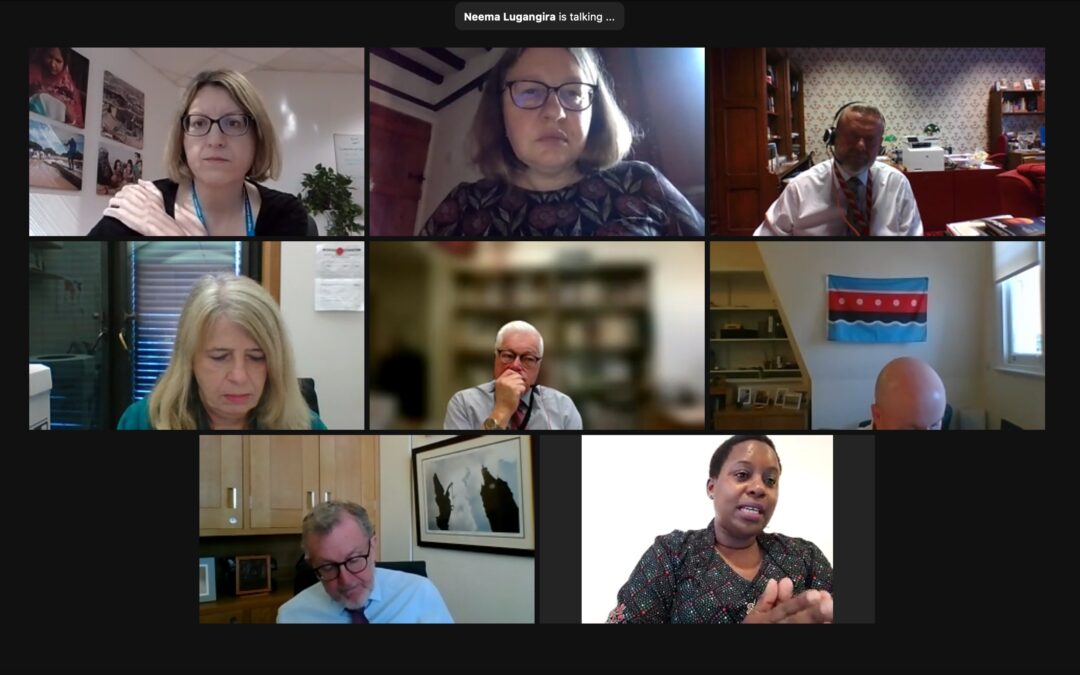On Tuesday 2 November, members of the APPG met with several experts in the field to better understand the interconnections between education and nutrition. In a roundtable format the speakers each addressed for five minutes before answering questions from parliamentarians in attendance.
Professor Nicola Pitchford of the University of Nottingham discussed her research in Malawi and Sierra Leone, which has revealed the necessity of holistic approaches to education and nutrition, especially for girls. She noted that despite gains in educational technologies, 40% of children still fail to respond. Nutritional deficiencies are a significant factor in this. Thus, a nutritious diet and food security are essential for educational outcomes, and to combat the potential long-term cognitive effects of stunting. Pitchford made the case for more cost-effective, precision agriculture interventions that target specific soil deficiencies, allowing farmers to grow foods that best meet the nutritional needs of their local areas.
Neema Lugangira, Tanzanian MP and Chair of the Parliamentary Caucus on Food Safety, brought attention to the challenges Tanzania faces in terms of education and nutrition. Lugangira noted that while Tanzania has robust plans for tackling issues of nutrition, implementing them has proven difficult and many children still experience stunting and vitamin deficiencies which in turn affect their ability to learn and long-term educational prospects. For example, in a class of 45 children, Lugangira estimated that a third are unable to comprehend the material due to malnutrition. A large contributing factor is the lack of school meals, as well as a gap in understanding of nutritional value within communities. These issues are especially prevalent in rural or hard-to-reach regions, which are often overlooked by development interventions. Lugangira therefore advocated for interventions which utilise local NGOs and community leaders that are well-positioned to implement programmes and educate their local areas. She also stressed the importance of enabling politicians to uphold their manifesto commitments to nutrition and education, and called upon the UK to recommit to nutrition at the Nutrition for Growth (N4G) summit in December in order to help make these plans a reality.
Abigail Perry of the World Food Programme, speaking last, focused on the two key windows of opportunity for nutrition and education: first, during pregnancy and a child’s early life, and second, the time when a child either enters school or is unable to enter school. Perry spoke about the importance of nutrition specific services for both of these periods, including high quality antenatal care, support for safe breastfeeding, acute malnutrition prevention, and enabling access to a nutritious diet. However, she highlighted the difficulties people face in accessing nutritious food, noting that even prior to the COVID-19 pandemic one-third of people were unable to access a healthy diet. To address these difficulties, Perry called for deeper analysis of the full supply chain that identifies gaps in the affordability and accessibility of nutritious foods. She also noted the need for social protection programmes to recognise the importance of nutrition and to incorporate it into future interventions.
Parliamentarians from the APPGs on Nutrition for Growth and Global Education committed to address these issues and recommendations, especially those promoting good-value interventions, in parliament during the lead-up to the N4G summit.
The APPG would like to extend its sincere thanks to all of the speakers and parliamentarians who attended today’s roundtable.

